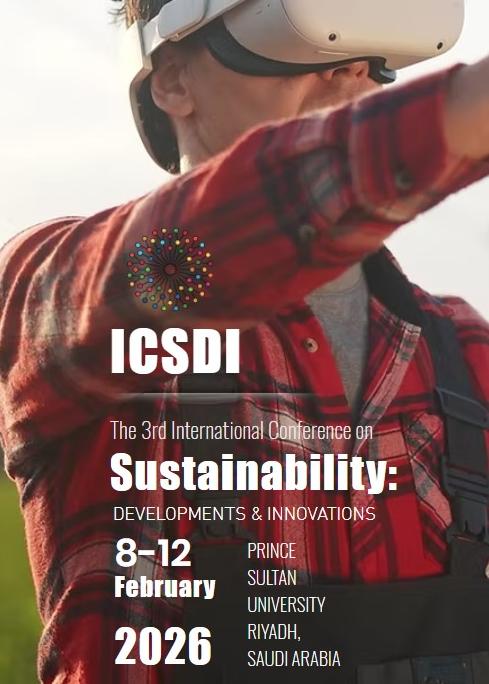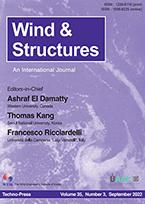Book Title " TRANSBOUNDARY WATER SECURITY: GLOBAL RESILIENT PRACTICES AND POLICY INITIATIVES
TWS
- URL: http://https:??www.wpc.org.in
- Call For Paper Type: Regular
- H2 Index: 0
- Submission Date: 2024-09-10
- Notification Date: 2024-07-31
- Final Version Date: 2025-09-10
Public Policy & Administration
v
CALL FOR CHAPTERS
TITLE: TRANSBOUNDARY WATER SECURITY: GLOBAL RESILIENT PRACTICES AND POLICY INITIATIVES
Publishers: We are in communication with Routledge, a subsidiary of Palgrave Macmillan, for the publication of the book.
Editors:
- Saraswathi Unni, India
- Raosaheb Bawaskar, India
- Thong Tran, Australia
- Olivier Cogels, Senegal
Introduction:
The global water crisis transcends traditional boundaries, posing challenges that demand a paradigm shift in governance and cooperation. Previously confined to local or regional spheres, water issues now permeate geopolitical and geoeconomic landscapes, exacerbating disparities across South, West, and Central Asia, parts of Africa, Europe and South America. As water becomes increasingly instrumental in shaping political and economic decisions, its mismanagement can precipitate poverty, crime, and migration, undermining governance and democracy. Outdated approaches reliant on overexploitation no longer suffice, risking societal upheaval. The postmodernist notion of forcibly addressing seasonal challenges overlooks the need for holistic, sustainable solutions. Water’s irreplaceable nature and high transportation costs underscore the imperative for effective resource management and international collaboration, particularly in transboundary basins where shared resources necessitate equitable usage. Despite the prevalence of transboundary waters, a lack of agreements and institutional frameworks hampers effective management, exacerbated by climate change. Furthermore, challenges at national administrative levels can impede cooperation, emphasizing the need for strengthened governance frameworks. Addressing these complexities requires a concerted effort to navigate political, economic, and environmental dimensions, ensuring the sustainable management of this vital resource.
Need For Strengthened Governance Frameworks to Sustainably Manage Joint Resources
Transboundary waters refer to the aquifers, lake and river basins shared by two or more countries. There are approximately 276 transboundary river basins on the planet with a geographical area corresponding to almost half of the earth's surface and 60 percent of freshwater supplies. About three billion people in 145 countries live in this area. Two billion people rely on groundwater resources, of which approximately 273 are transboundary aquifer systems. Transboundary waters connect people from different countries or regions. These physical realities, together with the need for sustainable development and the equitable and reasonable use of these common resources, create the conditions necessary for cooperation between people, groups and countries.
Many transboundary waters are, however, not covered by agreements between the riparian states and do not have the joint institutional structures in charge of their joint management and cooperation. Notably, more than half of the world’s 276 international river basins, plus transboundary aquifer systems, lack any form of cooperative management framework. Even where joint institutions exist, the growing pressures on water resources––coupled with the impacts of climate change––amplify the challenges in implementing existing agreements and achieving progress in transboundary water cooperation, thereby calling for strengthened governance frameworks to build the required capacity to sustainably manage the joint-resources.
Boundaries in transboundary systems exist not just between countries. At the international level, transboundary cooperation in water management heavily depends on circumstances at the national level. For example, in a federal system, problems between administrative authorities are similar to those at transboundary level may also occur and complicate matters. Moreover, failure to cooperate between these different administrative levels within a country, such as the community level with the provincial level, can have severe impacts.
Objectives:
One of the critical objectives of this volume is to highlight that the water-resource degradation and depletion constitutes first and foremost a humanitarian crisis. Water indeed is the common denominator in the health, development, and environmental challenges facing the world. The water-pollution scourge and growing hydrologic variability arising from the disruption of natural water flows due to river fragmentation and other anthropogenic factors have seriously affected fluvial ecosystems. That, in turn, has impinged on traditional agriculture and grazing, devastated fisheries, and marginalized rural communities dependent on those waterways.
This book will provide a comprehensive picture of the biophysical, socioeconomic and geopolitical data, history-based indicators for future tensions, identification of basins at risk, water and energy distribution characteristics, demand features of different countries, causes of failure in river basin management and disputes and cooperation practices
This book seeks to achieve several critical objectives:
- Highlight the humanitarian crisis posed by water resource degradation and depletion.
- Provide a comprehensive analysis of biophysical, socioeconomic, and geopolitical factors influencing transboundary water conflicts.
- Examine mechanisms for resolving transboundary water disputes and promoting cooperation.
- Offer policy recommendations to address the complex challenges associated with transboundary water management.
Relevance and Rationale:
International water/river basins represent nearly half of the Earth’s land surface and are home to 40 percent of the world’s population. Risks and challenges associated with their management are often shared by neighbouring countries; hence, there is a strong a call for effective collaboration within and across borders. Transboundary water management and cooperation between and amongst riparian countries, is key to reducing disaster risks due to the fact that a large part of disaster risk is directly or indirectly linked to water such as floods, droughts, typhoons/ cyclones, flash floods, and landslides. Transboundary water resources cooperation can be established to deal with a multitude of issues. Riparian countries might decide to cooperate because there is a need to manage water quantities (i.e., make joint decisions on the allocation between user groups for purposes such as power.
This authoritative study will consider the profound impact of the growing global water crunch on international peace and security as well as possible ways to mitigate the crisis. Although water is essential to sustaining life and livelihoods, it remains the world’s most underappreciated and undervalued resource. One sobering fact is that the retail price of bottled water is already higher than the international spot price of crude oil. But unlike oil, water has no substitute, raising the specter of water becoming the next flashpoint for conflict. Water wars—in a political, diplomatic, or economic sense—are already being waged between riparian neighbors in many parts of the world, fueling cycles of bitter recrimination, exacerbating water challenges, and fostering mistrust that impedes broader regional cooperation and integration.
Call for Chapters:
Academics, researchers, and practitioners are invited to contribute chapters addressing the following themes:
- Biophysical, socioeconomic, and geopolitical factors influencing transboundary water conflicts.
- Case studies of transboundary water management and cooperation initiatives.
- Policy frameworks and governance mechanisms for sustainable water management.
- Innovative approaches to resolving transboundary water disputes.
- The role of stakeholders and institutions in transboundary water governance.
- Financing mechanisms for transboundary water resources management.
- Chapter authors may also submit chapters that have relevance to the Concept Note and need not restrict themselves rigidly to the themes given above.
Guidelines to Authors: ABSTRACTS
1.Abstracts should be between 800-1000 words (excluding references), MS Word single spaced with a 1-inch margin on all sides.
2. Font should be Times New Roman 12-point font.
3.The Abstract should have a representative list of references, not exceeding 20.
4. Abstracts should include the names of authors/co-authors along with brief biographies (maximum 500 words) with focus on publications.
4. Prospective chapter contributors must give a statement validating the originality of the proposed paper.
5 Draft chapters should not have been previously published or under consideration elsewhere.
Guidelines to Authors: FULL PAPERS
1.Length: 7000 - 10000 words maximum (including Text, figures, reference list, charts tables and appendices).
2.Style: Times Roman, 12pt, 2.0 spacing.
3.Methods: No methodological restrictions are imposed; however, Research Elements such as a Research Design, Theoretical background, Research Data, Data Linking and well-structured papers are expected.
4. Conceptual, theoretical and policy analysis contributions are welcome.
5. Referencing: APA style referencing with plagiarism analysis.
6. Policy considerations: Major conclusions and policy recommendations are expected.
8. Originality: Similarity Index (Plagiarism) must be less than 10%
9.Peer Review: All chapters will undergo peer review.
Important Dates:
Submission of Abstract: 10th September, 2024
Submission of first draft chapter: 15th October, 2024
Review & feedback: 15th November,2024
Submission of final chapter: 15th December, 2024.
Submission Guidelines:
Authors should submit their abstracts and chapters to the editors via email to saraswathiunni@wpc.org.in with cc to director@wpc.org.in & thong.tran@anu.edu.au
Editors:
- Saraswathi Unni,
Senior Research Fellow & Director (Research & Publications), Venuganga Foundation's Water Policy Centre, Aurangabad, India
Email: saraswathiunni@wpc.org.in
- Raosaheb Bawaskar
Faculty in Political Science,
Maharshtra National Law University, Aurangabad, &
Director (Honorary),
Venuganga Foundation's Water Policy Centre, Aurangabad, India
Email: director@wpc.org.in
Web: wpc.org.in
Dr. Thong Anh Tran
Honarary Lecturer
Fenner School of Environment and Society
College of Science
The Australian National University
Canberra, Australia
Dr. Olivier Cogels
Water Diplomacy Expert
BP 23 Rue de Hesse
10300 Gorée, Sénégal
oliviercogels@hotmail.com
For inquiries or further information, please contact the editors or visit www.wpc.org.in
We look forward to your valuable contributions to this critical volume on Transboundary Water Security and Global Resilient Practices And Policy Initiatives.














